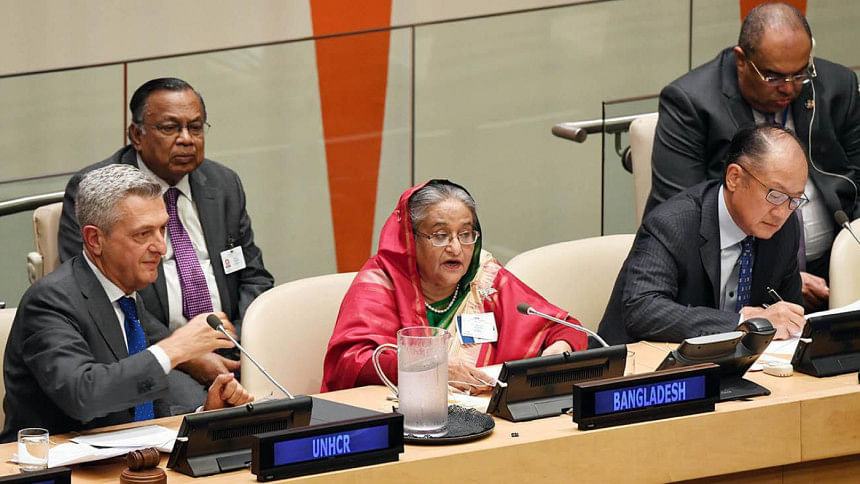PM's recommendations merit serious consideration

We welcome our prime minister's three recommendations at a meeting on Global Compact for Refugees to end the Rohingya crisis. Being one of the few world leaders who have welcomed thousands of refugees fleeing horrific persecution, she is more than qualified to make such recommendations. She has pointed out that the first thing Myanmar must do is scrap the discriminatory laws, policies and practices against the minority group. The second recommendation—to build trust, guaranteeing protection and a pathway for citizenship for the Rohingyas—is also crucial to ensure the safe and dignified return to their homeland. Her third recommendation is to call for accountability and justice for the atrocious crimes committed in Myanmar as highlighted by the UN Human Rights Council.
Unfortunately, the stance of Myanmar's government is not very encouraging regarding its willingness to resolve the crisis that they themselves have created. It is disheartening that Myanmar has chosen to reject the UN fact-finding mission's call for the International Criminal Court (ICC) to prosecute members of the top brass in Myanmar's army for genocide against the Rohingya people. The army chief's statement that the Rohingyas are outsiders and Bengalis, and that the law that fails to recognise the group as part of Myanmar's citizenry would remain, contradicts the repatriation treaty between Bangladesh and Myanmar.
Although Myanmar is not a signatory to the treaty that recognises the authority of the ICC, the international court can begin investigation of the crimes committed by members of Myanmar's army against the Rohingya people. The ICC has jurisdiction to prosecute individuals accused of international crimes, in this case genocide, when national courts are unwilling or unable to prosecute criminals and when the UNSC refers situations to the Court. In this case both conditions apply.
It goes without saying that the situation in the Rohingya camps is dire and unsustainable with international funding dropping and the host country's resources being overextended. It is the international community's responsibility to make sure that the perpetrators of this genocide are held accountable and that the Rohingya refugees can return safely to Myanmar as its citizens.

 For all latest news, follow The Daily Star's Google News channel.
For all latest news, follow The Daily Star's Google News channel. 



Comments